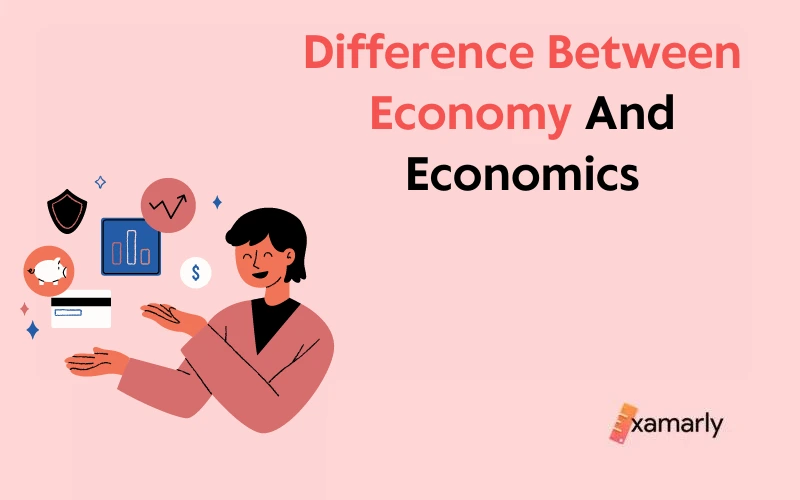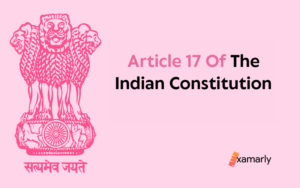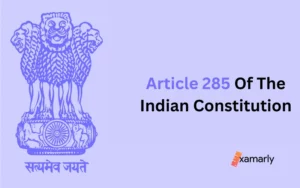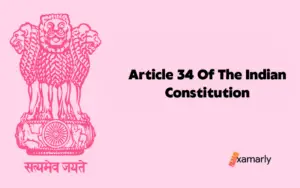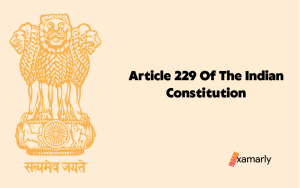Are you confused about the difference between economy and economics? You’re not alone. Many people use the terms interchangeably, but they do have distinct meanings.
The economy is the system by which goods and services are produced, distributed, and consumed, while economics is the study of how this system works.
In other words, the economy is what we can see and experience, while economics is the lens through which we study and understand it.
In this blog, we’ll dive deeper into the difference between economy and economics and explore how they are related to one another. From the workings of the stock market to the impact of government policies, we’ll uncover the subtle distinctions that make all the difference in understanding the world around us.
- What Is Economy?
- What Is Economics?
- Difference Between Economy And Economics
- Reasons For Studying Economics?
- Conclusion
- FAQs On Economy Vs Economics
- Are Economy And Economics The Same Thing?
- What Is The Relationship Between Economics And The Economy?
- Who Is The Father Of Economics?
- Why Do We Study Economics?
- What Is The Main Difference Between Economy And Economics?
- What Are The Branches Of Economics?
- What Is The Main Objective Of Economics?
- Can Economics Be Applied In Other Fields?
- What Are The Tools Used In Economics?
- How Is The Economy Measured?
- How Is The Economy Related To Society?
What Is Economy?
The economy refers to the system by which goods and services are produced, distributed, and consumed within a society or country. It encompasses various aspects such as production, consumption, trade, and investment, and it is the backbone of a society’s development and growth.
The economy is made up of various sectors such as agriculture, manufacturing, services, and trade. The performance of the economy is measured by various economic indicators such as GDP, unemployment rate, and inflation rate.
The economy is constantly changing, and it can be affected by factors such as political decisions, natural disasters, and technological advancements. The overall performance of the economy can determine the standard of living of the society and the well-being of its citizens.
Types Of Economy
There are several different types of economies, each with its own unique characteristics and features. Some of the main types of economies include:
- Market economy: In a market economy, the prices of goods and services are determined by the forces of supply and demand, and the government plays a minimal role in the economy. This type of economy is often associated with capitalism.
- Socialist Economy: In a socialist economy, the State indicates that the community collectively owns and controls the factors of production. Within the framework of this economic system, a centralized planning body determines the manner in which resources are dispersed among the inhabitants of the community.
- Command economy: In a command economy, the government plays a central role in the economy, making decisions about the production and distribution of goods and services. This type of economy is often associated with socialism.
- Mixed economy: A mixed economy combines elements of both market and command economies, in which the government plays a role in the economy but also allows for private enterprise and market forces.
- Traditional economy: A traditional economy is a framework that is based on traditions, the past, and long-held beliefs. Economic choices like production and distribution are influenced by tradition. Traditional economies rely on farming, fishing, hunting, gathering, or some combination of these activities.
- Subsistence economy: A subsistence economy is one in which the majority of the population is engaged in the production of goods and services for their own consumption, with little or no surplus production.
- The informal economy: An informal economy refers to the activities that take place outside the formal economy, such as street vending, bartering, and black market activities.
- Green economy: A green economy is one that is low-carbon, resource-efficient, and socially inclusive, and it aims to reduce environmental risks and ecological scarcities.
These are some of the main types of economies, but there can also be variations and combinations of these types. The type of economy a country has can affect the standard of living, the distribution of wealth, and the overall economic performance of a country.
What Is Economics?
Economics is the study of how societies, governments, businesses, households, and individuals allocate scarce resources, such as time, money, and goods, to meet their unlimited wants and needs. It is the social science that analyses the production, distribution, exchange, and consumption of goods and services.
Adam Smith, a Scottish economist, is credited with being the founder of modern economics as we know it today.
Macro and microeconomics are two categories into which economics is divided.
Economics also has a normative side, which is concerned with making judgments about what the economy should be like and how economic policy should be conducted.
Economics is a social science that uses various tools such as mathematical models, statistical analysis, and other methods to understand the functioning of the economy and make predictions about future economic trends. It is an important field of study as it can help individuals, businesses, and governments make informed decisions about the allocation of resources and the creation of policies that promote economic growth and development.
Types Of Economics
Economics is divided into two main branches: microeconomics and macroeconomics.
Microeconomics is the branch of economics that study the behavior of individual economic agents, such as consumers and firms, and how they make decisions about the allocation of resources. It examines how prices are determined in specific markets and how those markets interact to form the overall economy.
Macroeconomics, on the other hand, looks at the economy as a whole, and it studies the overall performance of the economy, including issues such as inflation, unemployment, and economic growth. It examines how government policies, such as monetary and fiscal policies, can be used to stabilize the economy and promote economic growth.
Difference Between Economy And Economics
| Basis for Comparison | Economics | Economy |
|---|---|---|
| Definition | The study of economics entails both the science and the art of decision-making in relation to the allocation of limited resources within the constraints of limited availability in order to achieve the highest possible level of pleasure. | The term “economy” refers to the total of all systems for the creation, distribution, acquisition, consumption, and exchange of products and services in a community or country, as well as for employment. |
| Scope | Analyzes the production, distribution, exchange, and consumption of goods and services | Examines various aspects such as production, consumption, trade, and investment |
| Focus | Looks at the behavior of individual economic agents and the overall economy | Looks at the economy as a whole |
| Branches | Microeconomics and Macroeconomics | – |
| Tools | Mathematical models, statistical analysis, and other methods | – |
| Purpose | To understand the functioning of the economy and make predictions about future economic trends | To provide a backbone for a society’s development and growth. Reflects economic activity |
| Nature of study | Theoretical and Principle | Practical application |
It is also worth noting that, while economics is a social science that studies the economy, it can also be applied in other fields such as business, political science, and environmental studies to help understand and make decisions about resource allocation and policy. The economy, on the other hand, is the actual system that is being studied and analyzed by economists.
Reasons For Studying Economics?
Economics is studied for several reasons, including:
- To understand how the economy works: Economics provides an understanding of how resources are allocated and how goods and services are produced, distributed, and consumed. This can help individuals, businesses, and governments make informed decisions about the allocation of resources and the creation of policies that promote economic growth and development.
- To predict future economic trends: Economics uses various tools such as mathematical models, statistical analysis, and other methods to understand the functioning of the economy and make predictions about future economic trends. This can help individuals, businesses, and governments anticipate and plan for future economic conditions.
- To understand the impact of government policies: Economics examines how government policies, such as monetary and fiscal policies, can be used to stabilize the economy and promote economic growth. This can help individuals, businesses, and governments understand the potential impact of different policy options and make more informed decisions.
- To analyze economic activity: Economics is concerned with analyzing economic activity and understanding the behavior of individual economic agents. This can help individuals, businesses, and governments understand how different economic decisions will impact the overall economy.
- To improve the standard of living: By studying economics one can understand how to create policies that promote economic growth and development, which can lead to an improvement in the standard of living of citizens.
Overall, economics plays a key role in understanding the complex workings of the economy and its implications for society, which can help individuals, businesses, and governments make better decisions to improve the well-being of citizens.
Conclusion
In conclusion, understanding the difference between economy and economics is crucial for grasping the complex workings of our world. The economy is the tangible reality of how resources are allocated and consumed, while economics is the lens through which we study and make sense of that reality.
By analyzing the production, distribution, and consumption of goods and services, economics helps us understand how individuals, businesses, and governments make decisions about resource allocation. And by measuring the performance of the economy, we can see the impact of those decisions on society as a whole.
Together, economy and economics provide a holistic understanding of economic activity and its implications on our daily lives. Thus, it’s important to have a clear understanding of both the economy and economics to make informed decisions and contribute to the development and growth of our society.
In the interest of further readings:
| Which Article Is The Heart And Soul Of The Indian Constitution | Difference Between Colonialism And Imperialism |
| Difference Between Secularism And Communalism | Article 371 Of The Indian Constitution |
FAQs On Economy Vs Economics
Are Economy And Economics The Same Thing?
No, the terms “economy” and “economics” are not synonymous. The economy is characterized as a social domain that emphasizes the significance of practices and discourses related to the manufacture, utilization, and management of resources. Economics is concerned with the interactions and behaviours of economic agents. It considers how decisions are made by people, families, businesses, governments, and nations regarding the distribution of scarce resources to satisfy their endless demands in order to achieve maximum pleasure.
What Is The Relationship Between Economics And The Economy?
The relationship between economics and economy is that of a subject and its object of study. The economy is the actual system that is being studied and analyzed by economists. Economics is the social science that examines how societies, businesses, households, and governments allocate scarce resources to meet their unlimited wants and needs. The economy comprises the production, distribution, and consumption of goods and services. Economics uses different tools such as mathematical models, statistical analysis, and other methods to understand how the economy works, and how it is affected by different factors such as government policies, technological advancements, and market forces. The economy is the foundation on which society is built, and economics studies the economy to understand how to improve its performance and the well-being of citizens.
Who Is The Father Of Economics?
Adam Smith is widely considered the “father of economics.” Smith’s ideas formed the basis of the classical school of economics and continue to be studied and referenced in economic theory today.
Why Do We Study Economics?
We study economics to understand how societies allocate scarce resources to meet unlimited wants and needs, predict future economic trends, analyze the impact of government policies, and ultimately improve the standard of living of citizens.
What Is The Main Difference Between Economy And Economics?
The main difference is that the economy is the system by which goods and services are produced, distributed, and consumed within a society or country, while economics is the study of how societies, governments, businesses, households, and individuals allocate scarce resources to meet their unlimited wants and needs.
What Are The Branches Of Economics?
The two main branches of economics are microeconomics and macroeconomics. Microeconomics studies the behavior of individual economic agents such as consumers and firms, while macroeconomics looks at the economy as a whole and examines issues such as inflation, unemployment, and economic growth.
What Is The Main Objective Of Economics?
The main objective of economics is to analyze economic activity and make predictions about future economic trends.
Can Economics Be Applied In Other Fields?
Yes, economics can be applied in other fields such as business, political science, and environmental studies to help understand and make decisions about resource allocation and policy.
What Are The Tools Used In Economics?
Economics uses various tools such as mathematical models, statistical analysis, and other methods to understand the functioning of the economy and make predictions about future economic trends.
How Is The Economy Measured?
The performance of the economy is measured by various economic indicators such as GDP, unemployment rate, and inflation rate.
How Is The Economy Related To Society?
The economy is closely related to society. The overall performance of the economy can determine the standard of living of the society and the well-being of its citizens.


